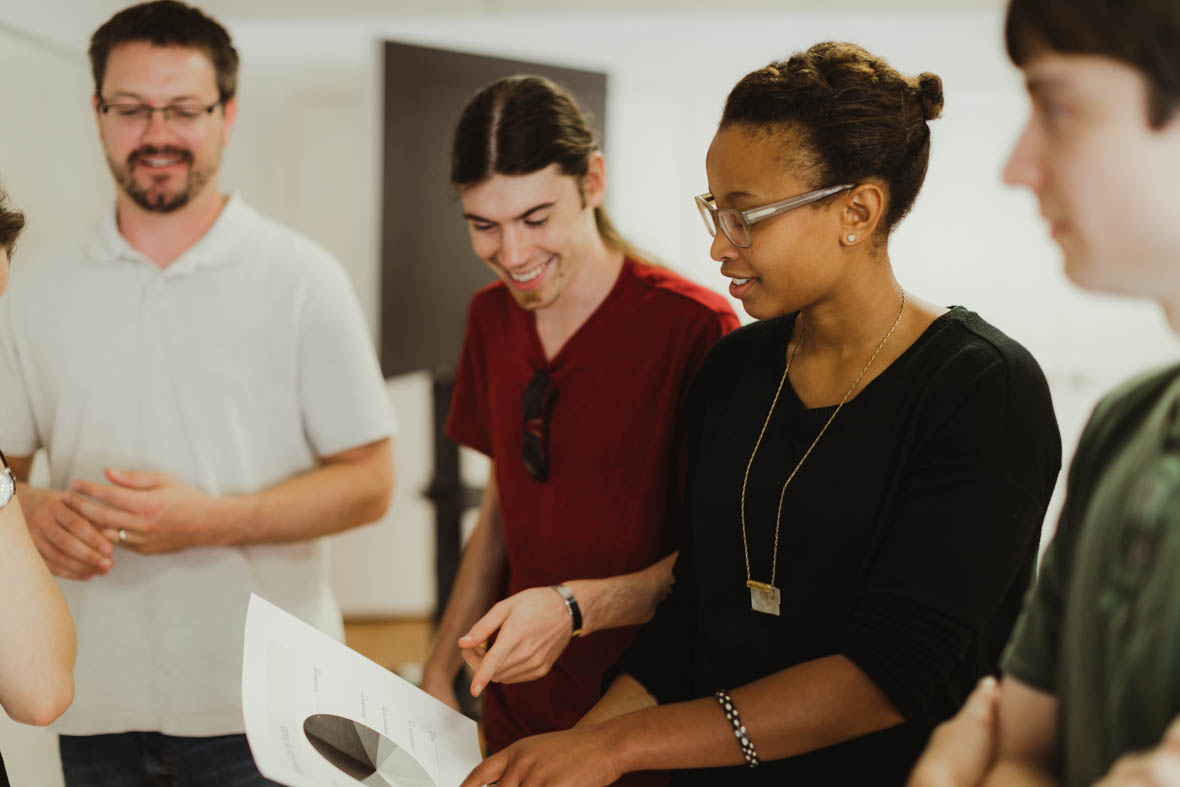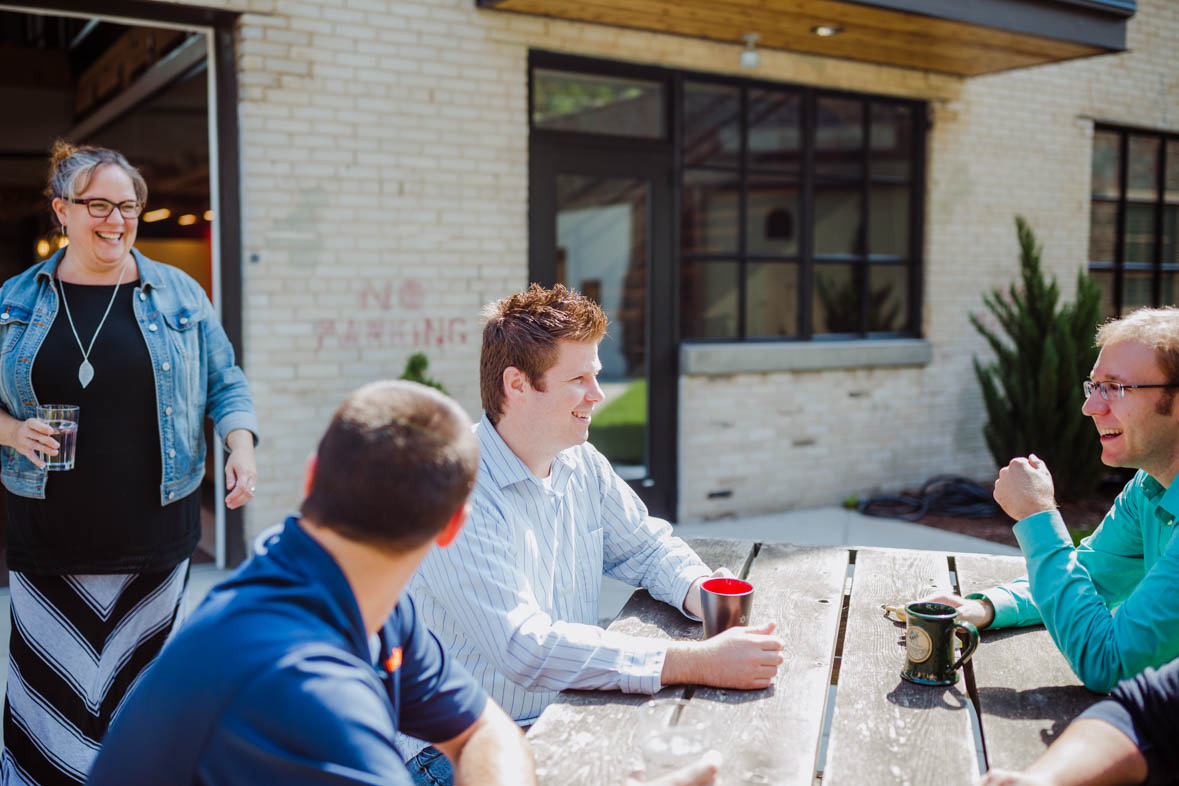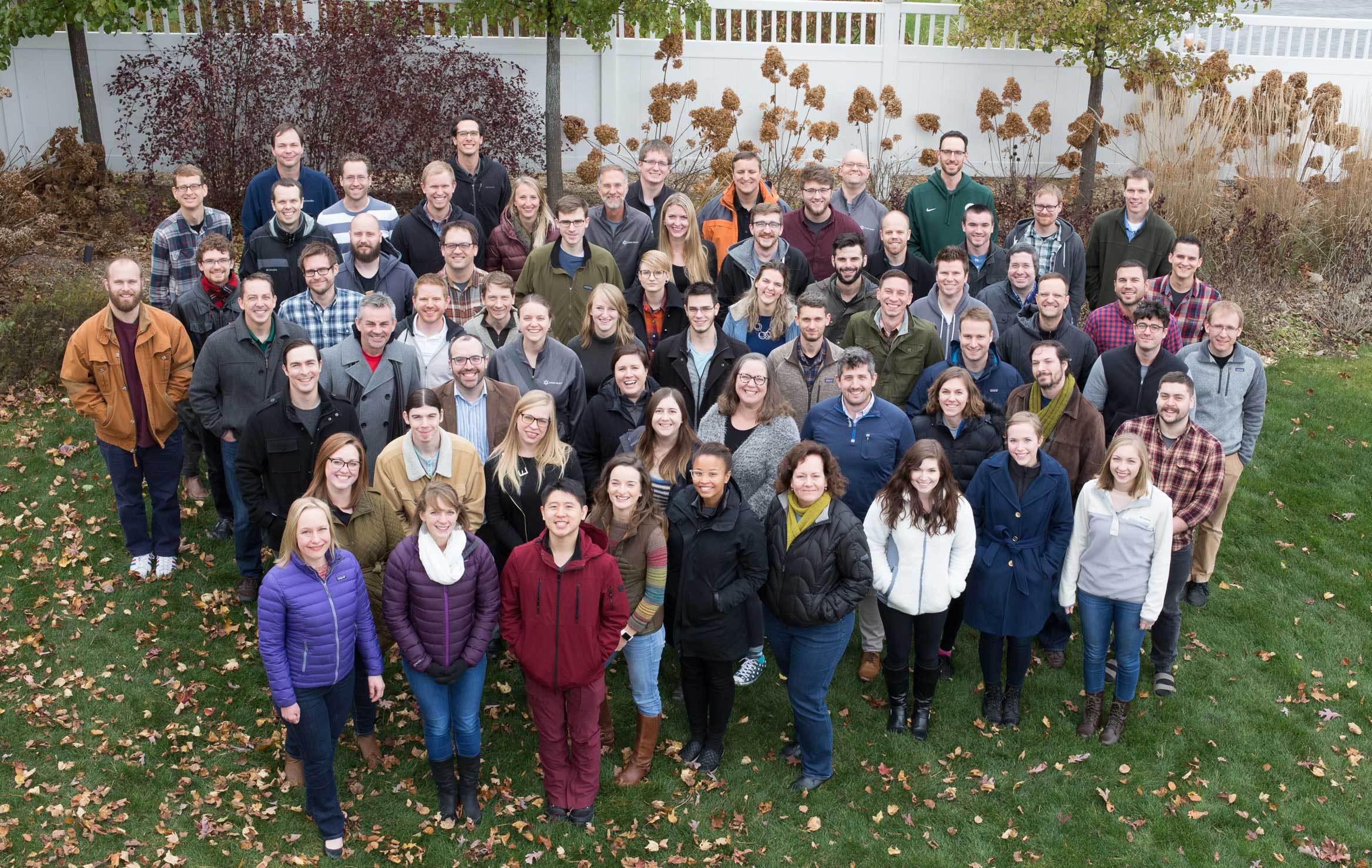
This winter, Atomic Object became a Certified B Corporation®, joining the movement of people using business as a force for good. B Corps consider the impact of their actions on not just shareholders, but on all stakeholders—including their employees, suppliers, community, clients, and the environment.
I sat down with Atomic’s CEO Carl Erickson and Business Manager Mary O’Neill to talk about why Atomic pursued B Corp™ certification, what it means for our company, and how it might influence us in the future.
B Corps™ are all about “redefining business success.” What does that look like at Atomic?
Mary O’Neill
It’s taking a broader view. B Corp™ thinking pivots away from the assumptions of agency theory, looking at how we can create positive impact on a broad group of stakeholders beyond the direct success of our clients and earnings per share to shareholders.
Carl Erickson
The conventional definition of success in the software business is primarily revenue (wealth for the founder/stockholders), or pushing technical boundaries and working on cool things. While we certainly value creating wealth for our 35-odd employee owners, we also care about all our stakeholders: our clients, employees, shareholders, the communities where we work—including the neighbors and the businesses and the cities themselves.
As we think long-term, our bottom line is determined by our reputation, the happiness of our employees, and the health of our local communities. Whatever we can do to contribute to those things helps us very directly.
The only reason this is hard for many business people to grasp, and they may be tempted to reject these efforts as “do-goody,” is the gap in time between the effort and the expense, and the payoff. The interim is too long for most people to see and appreciate. It requires either a leap of faith or a willingness to base investments and decisions involves having nothing to do with a traditionally defined bottom line.

What’s the process for becoming a B Corp™?
Mary O’Neill
We completed a rigorous online assessment of more than 200 questions. Some questions took 10 minutes to answer, while others took more than four hours. It was a comprehensive look at how our company is structured; how ownership and governance are defined; the benefits and compensation we provide to our employees; who our clients are and whom they serve directly (in terms of underserved communities); what we’re doing to minimize our environmental impact; and so on.
The minimum number of points a company needs to earn to become a certified B Corporation® is 80. Atomic’s score was 110.4.
Carl Erickson
The final step in the certification process is changing your legal founding document to recognize that the company operates with multiple stakeholders in mind—a triple, or multiple bottom line (social, environmental and financial) idea. We’ve recently completed that change to our governance documents.
Did Atomic have to change any policies or practices?
Mary O’Neill
Whether we have realized it or not, Atomic has been on the path toward becoming a B Corp™ since our inception in 2001. Our score was based on precisely how we operate today.
We may choose to make improvements in the future that may give us stronger standing in any one of those categories. We look forward to gaining inspiration from other great B Corp™ companies.
Carl Erickson
As a consultancy, we have a different perspective than an organization like Patagonia might. For us, B Corp™ certification is not necessarily about the environment or social justice. The majority of our points came from the “worker” section—from our policies and practices around how Atomic treats and empowers its employees.
Our recognition brings attention to the fact that you don’t necessarily need to be directly serving the poor or protecting the planet to be a company that contributes in a beneficial fashion to the world, and I’m very proud of that.

What does becoming a Certified B Corporation® mean to you personally?
Carl Erickson
I see the high score and the certification as formal recognition that 17 years of work-maturing and refining our operations isn’t just a matter of one-off decisions. It is a recognition of the cohesive strategy of treating people well and thinking about something other than just revenue.
You don’t really know, in the moment, the outcomes of your actions when you’re building a company. You do things because they’re the smart thing to do. You follow your instincts, and sometimes it’s nice to get an outsider’s view to confirm your instincts–to say, “This makes you unusual and exceptional.” The fact that this exceptionalism has created good results isn’t coincidence; it makes sense.
Mary O’Neill
I’m extremely proud of Atomic and how we’ve strategically evolved toward becoming a B Corp™, and I look forward to engaging with the broader B Corp™ community. I have always had high confidence in Atomic as a company, and it’s exciting to go through a rigorous, third-party process to validate all the good we’ve worked hard to create over the last 17 years.
What’s your vision for Atomic’s future and how does being a B Corp™ affect that vision?
Carl Erickson
The certification formally recognizes and measures a multi-stakeholder, broader definition of doing good, and that is Atomic’s future. I want Atomic to be a place where multiple stakeholders matter, and our success is tied to that. Where the good we do in the world is broadly defined. Where the company will continue to do that good indefinitely beyond the involvement of any single individual.
I believe being a B Corp™ will encourage us to look at other areas we hadn’t thought of, things that like-minded firms do that inspire us. For example, what if we reserved some of our capacity for a client who cannot afford us but has a positive impact on the world? That could be a real inspiration for Atoms, and it would also be a more direct contribution to our community.



Congratulations! Great to see the formal recognition for what you’ve been doing since AO was founded.